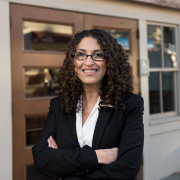Massachusetts Ballot Question 2: Explained by the Experts
The 2020 election is quickly approaching, and in some cases voters have already cast their ballots. Not only are voters selecting their preferred candidates, but many are also weighing in on ballot initiatives with important implications for public policy.
For reporters covering the debate around Massachusetts Ballot Question 2 regarding ranked-choice voting, the following experts are available to provide commentary and analysis:

Expert on democratic institutions and particularly electoral systems.
"In principle, ranked choice vote is a good system that allows for a more consensus-based approach to choosing representatives. However, there is a concern that we are reaching for electoral reform to cover up a structural weakness in our political system, and particularly within our parties."

Expert on the effects of campaign and election laws on the behavior of politicians and interest groups, with a particular focus on primary elections and campaign finance laws and practices.
"Ranked choice voting is a sensible reform that can reduce polarization while allowing voters more choices in elections. It is unlikely to have a major effect on Massachusetts politics, but it has the potential to bring order to a small number of races, improve campaign quality, and increase voter engagement."

Expert on game theory, contract theory, social choice theory, political economy, and other areas of economics.
"By seeking a majority, ranked-choice voting better reflects voter preferences — it is more democratic — than the method currently used in Massachusetts and 48 other states. That’s why I want to see our state adopt it." Excerpt from Maskin's Boston Globe column: "Five reasons ranked-choice voting will improve American democracy"